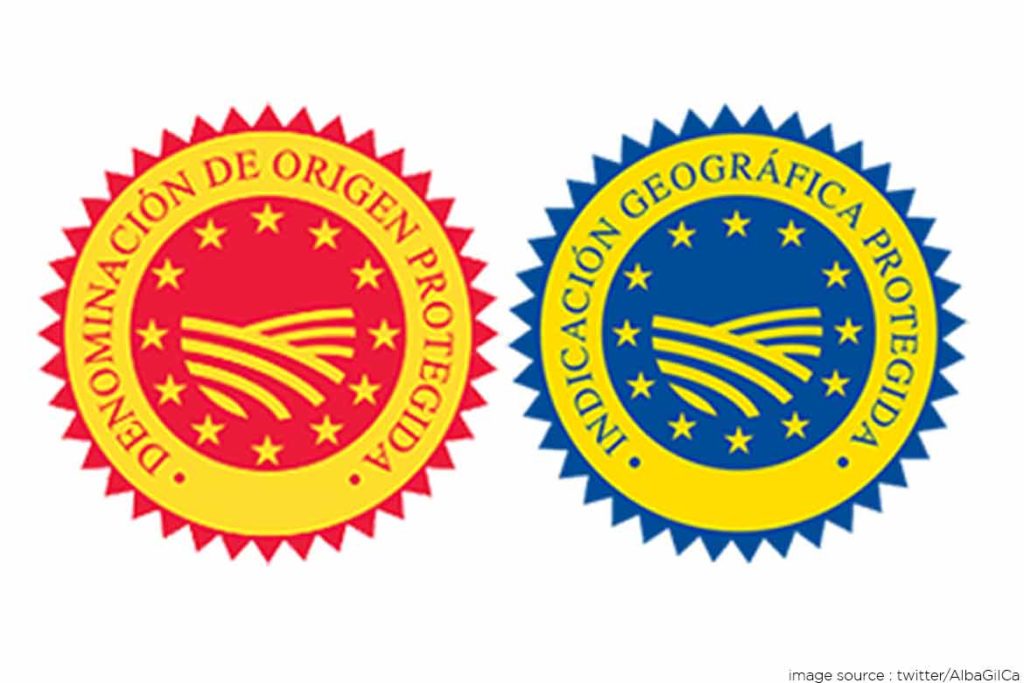Recently, Pakistan received a GI Tag for the Basmati Rice. This puts it in dispute with India in the EU, over who deserves actual ownership over the product. By registering its own GI for Basmati, it would claim the same protection of its Basmati in the EU as India. This starts another rivalry between 2 historic foes.
Today, we look into this issue from both sides, while understanding what a Geographical Indication tag is. We shall also look into the claims laid by both nations.
WHAT IS A G.I??
In simple words, a GEOGRAPHICAL INDICATION tag is a sign, used to distinguish products that have a specific geographical origin. These are products which enjoy a reputation in their region of origin because they have qualities unique to it. Thus, the country of origin of that product enjoys autonomy over it’s characteristics, marketing and revenue.

GIs generally come under Intellectual Property Rights under the Paris Convention for the Protection of Industrial Property. The TRIPS Agreement is the one that governs GIs. In order for any nation to register a product as theirs in the international market, they firstly need to register it as a G.I in their own nation. This means that you can claim ownership over a product internationally, ONLY IF it is protected by your own country’s G.I laws.
PAKISTAN’S BASMATI ANNOUNCEMENT
This decision has paved the way for Pakistan to create a local registry for Basmati rice. Additionally, this will also boost its case against India in the EU. Commerce Advisor Abdul Razak Dawood hailed this decision on Twitter as well.
This will provide protection of our products against misuse or imitation & hence will guarantee that their share in the international market is protected.
In addition, he even called for other Pakistani-origin products that could be registered as G.Is. This once again puts Pakistan at odds with India as now, there is a dispute regarding the true origin of Basmati. It all stemmed from September last year, when India submitted an application to the EU, claiming sole ownership over the product.
Pakistan’s counter argument says that Basmati was a joint product of India and Pakistan. It also claims to be one of the biggest exporters of Basmati. Out of the 500k-700k tonnes exported to different parts of the world, around 200k-250k is shipped to the EU nations. Thus, Pakistan believes its claims are genuine enough to go against a global giant like India.
INDIA’S BASMATI CLAIMS
As mentioned above, India 1st claimed sole ownership over Basmati in an application to the EU in September 2019.
India goes into the history of Basmati rice while expanding its claims. It says Basmati is a special long-grained aromatic rice. It grows below the foothills of the Himalayas in north India. Thus, it’s a product of the Indo-Gangetic Plains. India has time and again used this argument to put forward its case and thus today, has put it at odds with a familiar foe.
India has a much bigger share than Pakistan as far as Basmati Exports are concerned. It exports 65% of Basmati to EU nations as compared to Pakistan’s 35%, which gives a significant leverage to India in this case. However, India’s sole ownership over GI Tags of Basmati will not mean “exclusivity” over Basmati. This means Pakistan will also be able to sell it, though at a lower value.
FINAL WORDS
Pakistan has already started to follow on after this decision. The Rice Exporters Association of Pakistan (REAP) has already started to prepare a book containing the specifications and characteristics of Basmati that has to be followed by local producers.
On the other hand, there’s still a possibility of Basmati being a transnational G.I. This was the case for Pisco, thatwas shared between CHILE & PERU. Similarly, India can be designated the Protected Geographical Indication(PGI) while Pakistan, the Protected Designator of Origin(PDO). This probably would be the ideal way as Basmati grows in Punjab, J&K, Delhi, west UP, Himachal Pradesh and Haryana; regions present in both India and Pakistan. However, the chances of India and Pakistan agrreeing to share a G.I is very bleak, given the circumstances today.
There are multiple benefits that come along with a PGI status and Article 13 of the Regulation lays down the “protection” that is available to a registered GI holder in the EU. It prevents PGI from becoming generic and even protects the use of ‘Basmati’ with words such as style, type, method, as produced in, imitation or similar. This means that if India gets GI protection, then Pakistan won’t be allowed to sell its Basmati even with the labelling ‘Pakistan Basmati’ or ‘Basmati produced in Pakistan’ in the EU. This is another reason why Pakistan won’t come on board with India on this.
Pakistan currently is celebrating this decision as a major victory. However, India won’t stay put for long, considering Basmati’s historicity. All we need to see, is the decision E.U makes. Another sure thing is, that neither of the 2 plan on accepting the loss of Basmati’s G.I. We are currently in a very tricky position. The scales can tip to any side, and all we can do, is wait.
